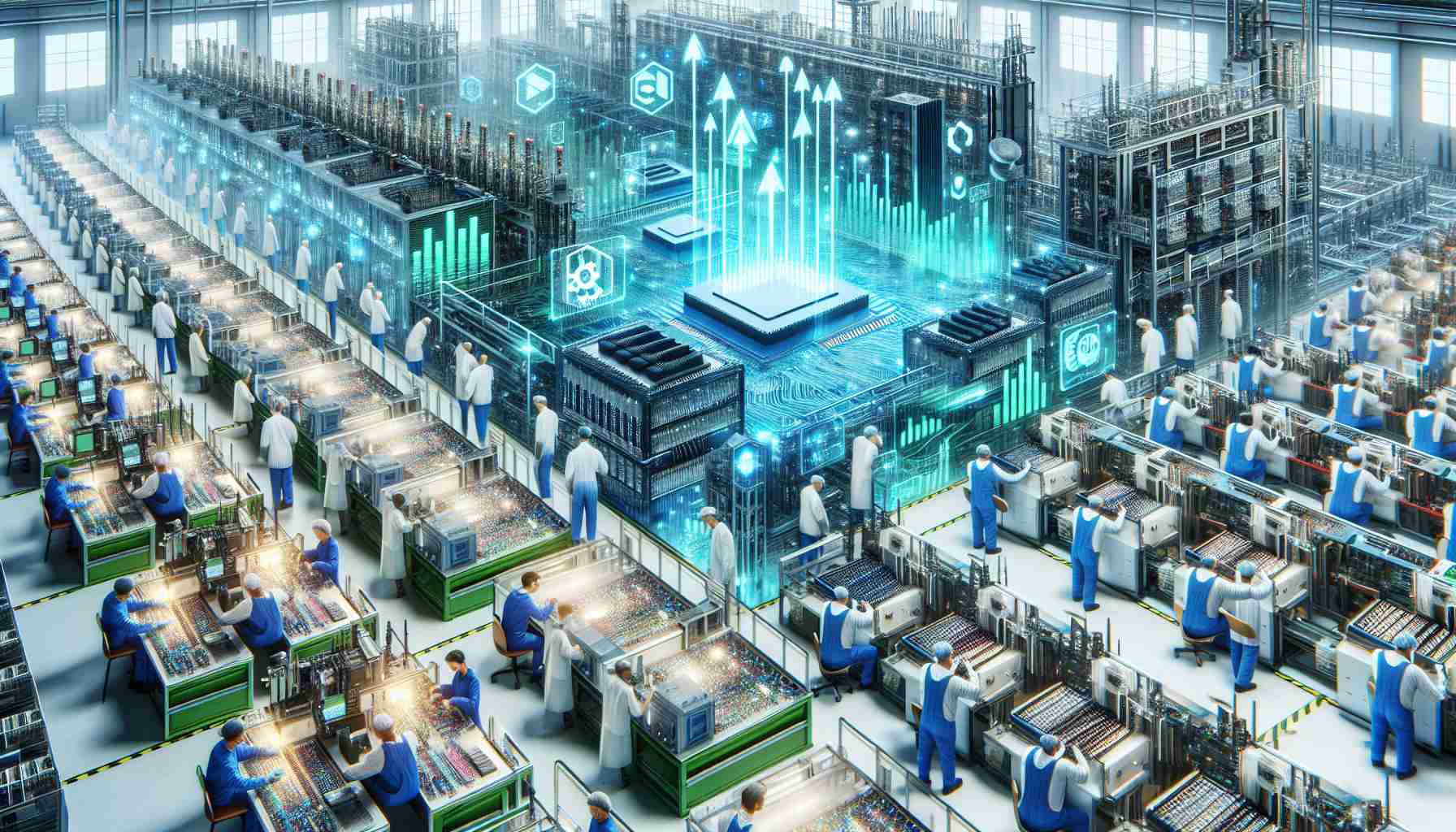With the artificial intelligence (AI) revolution accelerating, chip manufacturers are experiencing a significant upsurge in demand, particularly for advanced memory chips. At the forefront of this boom are industry giants such as Nvidia, who rely heavily on high-performance memory for their cutting-edge H100 graphics processing units. These specialized GPUs are the backbone of various generative AI tools, where Nvidia has established a dominant market position.
The race to power AI’s future has highlighted two key players: Samsung and SK Hynix, both of which hail from South Korea and specialize in memory chips. Samsung, known as the world’s top producer of dynamic random-access memory (DRAM) chips, is essential for data processing in technology. Meanwhile, SK Hynix has been making waves with its claim of being the first in mass production of the HBM3E, a next-generation high-bandwidth memory chip.
Recent financial reports from both companies show a diverging story. Samsung’s notable earnings beat, with a spike in operating profit, has been juxtaposed against SK Hynix, which has snapped its streak of net losses with a strong net profit in their first quarter reports.
Investment experts weigh in on which company might be the better investment during this AI upswing. Global portfolio manager Trent Masters casts his vote for SK Hynix, particularly due to their early lead in HBM3 technology and the strength of their customer relationships. Masters also points to the pure memory focus of SK Hynix, as opposed to Samsung’s diversified conglomerate structure.
Nam Hyung Kim, an analyst with Arete Research, echoes this sentiment, emphasizing SK Hynix’s pure-play status and dominance in the high bandwidth memory market. In contrast, according to Kim, Samsung’s broader sales in consumer appliances and ongoing challenges in its foundry business warrant a more cautious investor approach.
Despite diverging analyst insights, both companies are seen to hold potential – as the memory cycle strengthens, some analysts believe Samsung may offer a more substantial upside in the short term, while SK Hynix could present a buying opportunity for investors on the lookout for an industry leader in memory technology poised for future growth.
Important Questions and Answers:
1. What are the key drivers of the surge in demand for advanced memory chips in AI?
The demand for advanced memory chips is fueled by the growth of AI applications requiring high-speed, high-capacity memory to process large data sets efficiently. The proliferation of AI technologies, such as machine learning, natural language processing, and computer vision, have accelerated the need for robust memory solutions.
2. What challenges do specialty memory producers face in this competitive market?
One of the major challenges is the need for continuous innovation to keep up with the rapid advancements in AI technology. These companies must invest heavily in R&D to develop faster and more efficient memory chips, while also ensuring reliability and cost-effectiveness.
3. How might the market share between Samsung and SK Hynix evolve with the current AI upswing?
Market share could shift depending on each company’s success in transitioning to production of more advanced memory technologies, such as the HBM3E. The ability to secure large contracts from major AI and GPU producers will also be crucial.
Key Challenges or Controversies:
– Scalability and Production Costs: As new memory technologies such as HBM3E become more advanced, the complexity and cost of production may increase. Companies must balance innovation with the ability to mass-produce memory chips at competitive prices.
– Supply Chain Concerns: The global tech industry has recently faced supply chain disruptions that could impact the ability of memory chip producers to meet demand.
– Technological Obsolescence: Rapid advancements in AI could render current memory technologies obsolete faster than expected, posing a risk to companies focusing on specific types of memory.
Advantages and Disadvantages:
Advantages:
– Faster Data Processing: Advanced memory chips enable more rapid data processing, which is critical for AI applications.
– Competitive Edge: Companies that innovate in specialty memory technologies can establish strong positions in the market and potentially set industry standards.
Disadvantages:
– High R&D Costs: Significant investment in research and development is needed to stay at the forefront of technology, which can be a barrier to entry for smaller companies.
– Market Volatility: The memory chip industry is known for its cyclical nature, with periods of oversupply and high demand affecting prices and profitability.
To understand the broader context and current trends in the tech and AI industries, it might be helpful to visit the main website of relevant industry players and market analysts. You can find related information on the main domains of Nvidia, Samsung, and SK Hynix by using the following links:
Please ensure to verify these URLs as they represent the companies discussed in the article and provide an opportunity to explore the latest developments in the field of specialty memory and AI chips.
